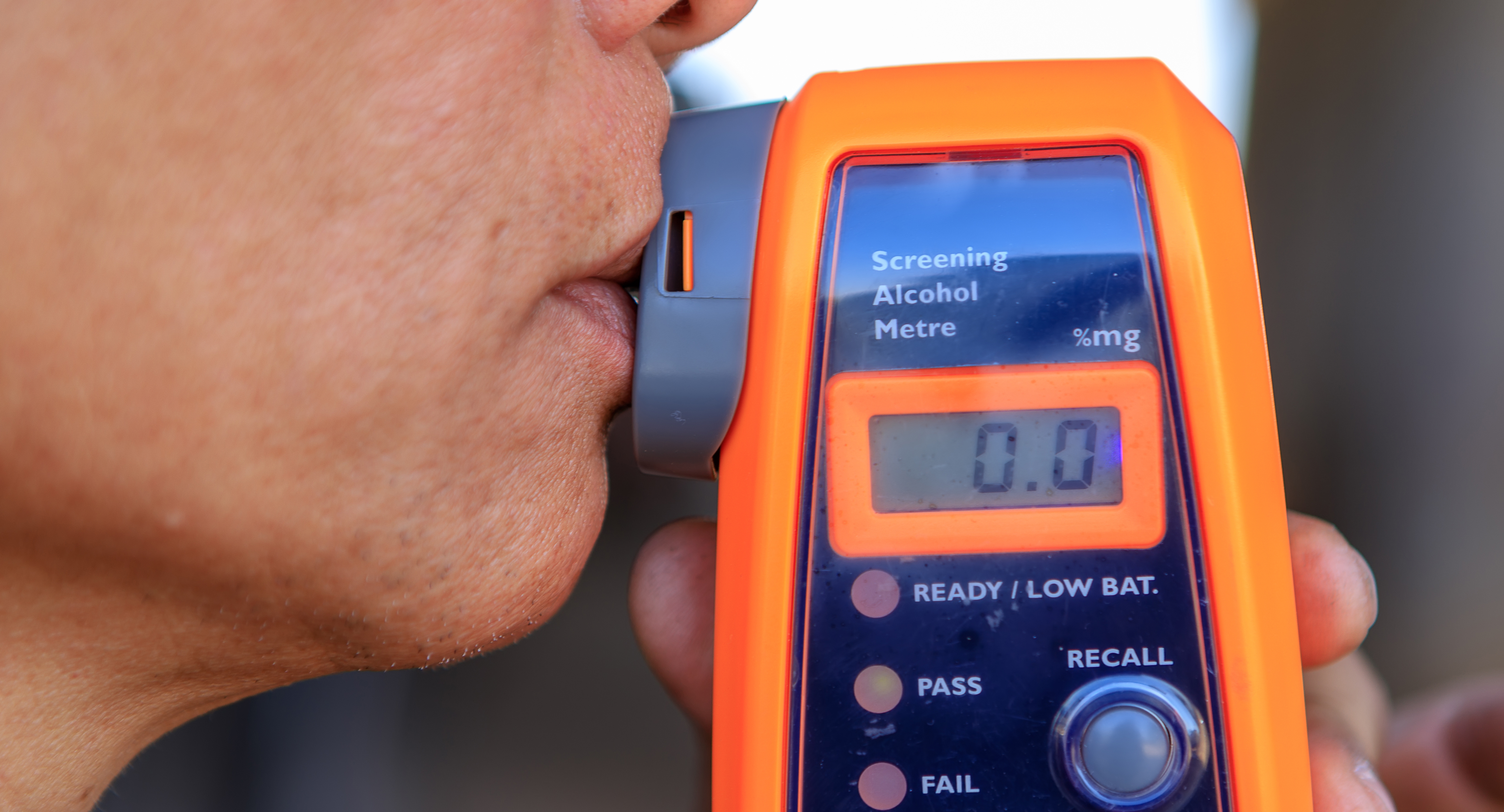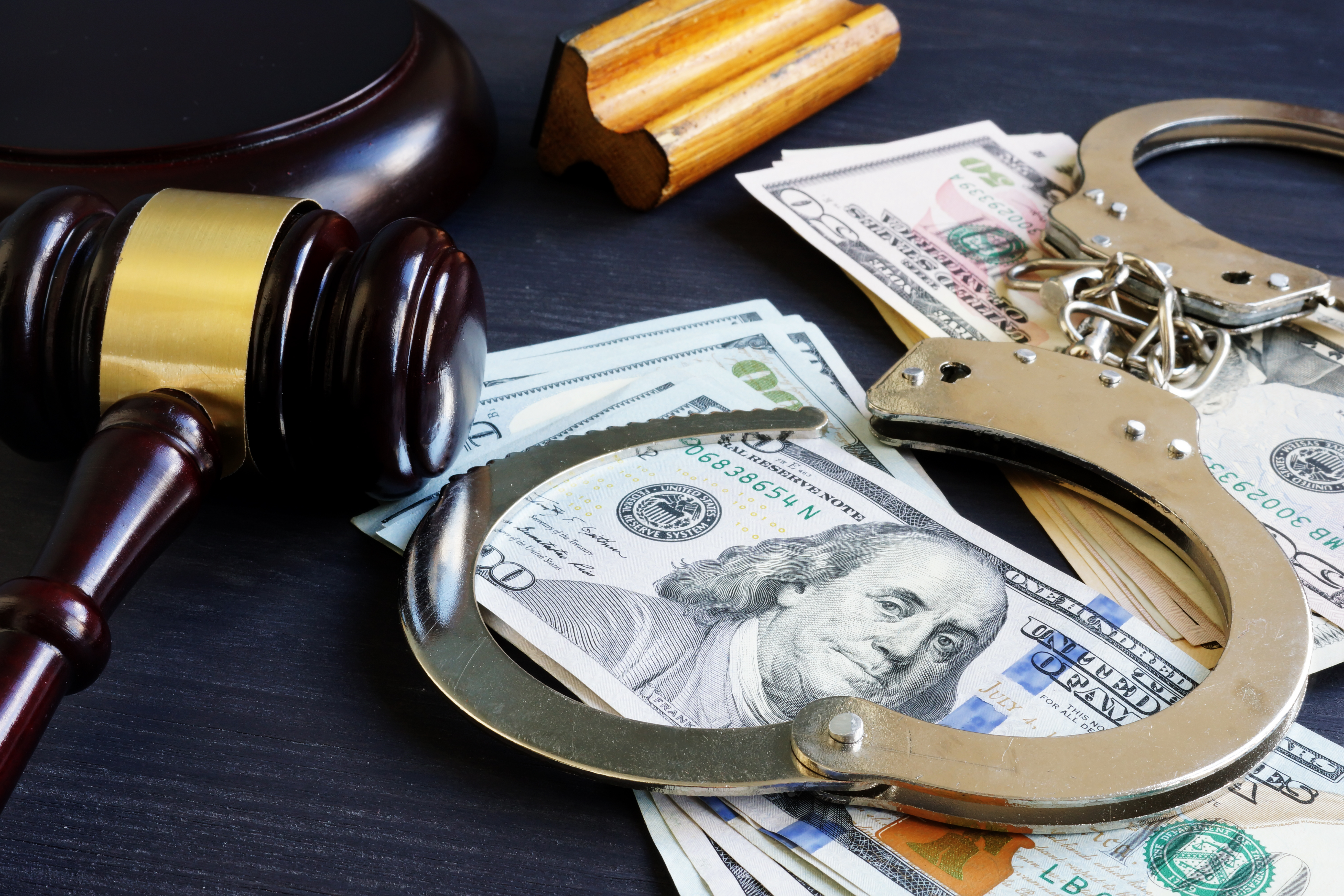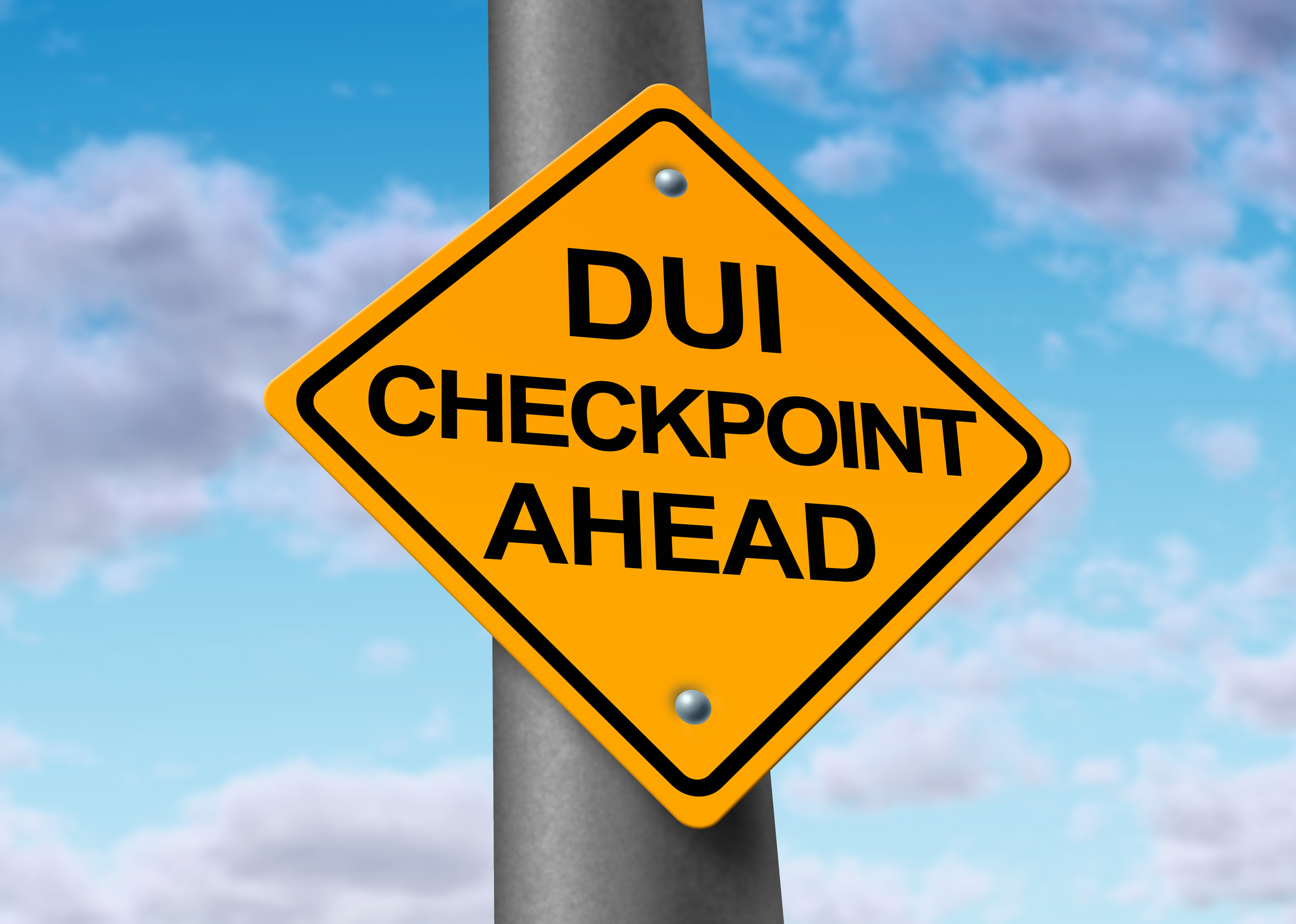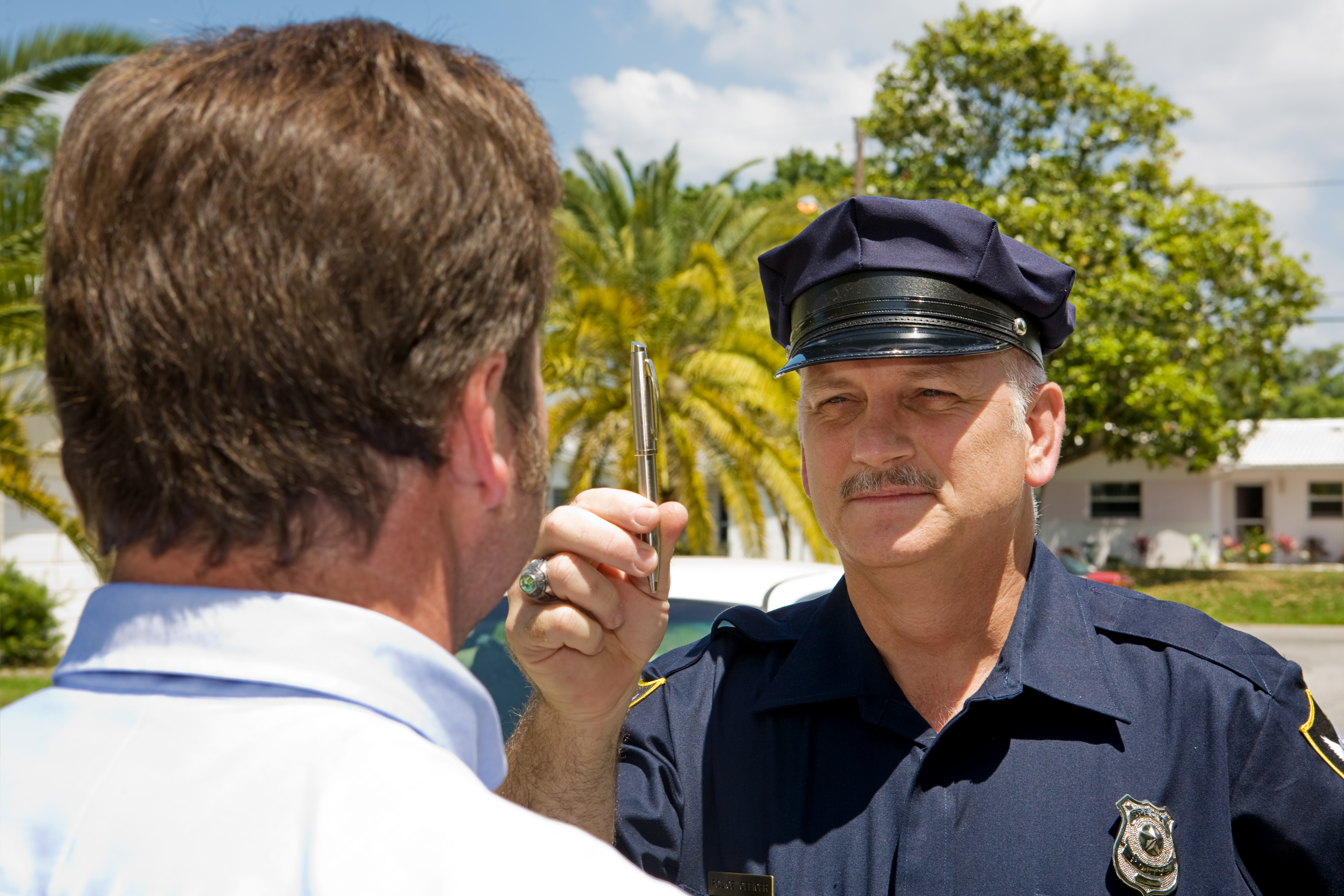- Driver’s licenses aren’t suspended immediately after a DWI arrest
- You won’t actually lose your driving privileges for about 40 days
- You must request an Administrative License Revocation (ALR) hearing within 15 days of your arrest
One of the first questions our clients typically ask after a DWI arrest is whether they’ll lose their driving privileges right away.
The answer is no. Though your license may eventually be suspended after your arrest, you’ll still be allowed to drive for about 40 days.
However, you’ll have to act quickly to maintain your driving ability. This article will explain the key timelines and steps you need to take.
READ MORE: DUI vs. DWI
What Happens to Your Driver’s License After Your DWI Arrest
Nothing should change if you don’t have a Texas license or a valid driver’s license.
If you carry a Texas driver’s license, it might be taken during an arrest. If so, you will be issued a Notice of Suspension and will still retain your driving privileges. However, if this happens, we recommend contacting Texas DPS as soon as possible to request a replacement license so you’ll have a valid state ID.
After you are charged, you have 15 days to request an Administrative License Revocation hearing. The ALR is an administrative process that requires the Texas Department of Public Safety to suspend your driver’s license after a DWI arrest.
The ALR is unrelated to any criminal license suspension resulting from a DWI conviction.
Because this is an administrative process, the DPS has a low burden of proof. Across Texas, about 10% of ALRs result in a win for the defendant. However, here at Michael & Associates, our win rate is higher than 40% on average.
READ MORE: Is your license suspended immediately after a DWI?

Why is it Important to Request an ALR Hearing?
If you do not request an ALR hearing before the deadline, your license will automatically be suspended about 40 days after the date that your suspension notice was served for the following periods:
- A minimum of 90 days for failing a breath, blood, or urine analysis BAC test
- A minimum of 180 days for refusing to carry out a breath, blood, or urine analysis BAC DWI test
Various factors, such as a previous DWI, can lengthen this period to up to two years.
However, there are still some steps we can take to protect your driving privileges. We can, for example, work to win your ALR hearing or help you request an Occupational Driver’s License (ODL).
READ MORE: Texas DWI arrest — what to know and how to beat it
How to Maximize Your Chances of Keeping Your Driver’s License
As previously mentioned, there are two ways to stay on the road: Winning your ALR or obtaining an Occupational Driver’s License.
How to Win an ALR Hearing
To win an ALR hearing, you need to have the best possible legal representation. There are really only two ways to win:
The police officer fails to appear: If a police officer who is properly subpoenaed to testify fails to appear, it can be an automatic win. However, this is not always a sure bet. Even if an officer doesn’t appear for the hearing, an inexperienced defense attorney can miss out on a dismissal if a subpoena is filed late or improperly.
At Michael & Associates, this is never an issue. We’ll ensure you have the best possible representation at your ALR, as our team includes former prosecutors with experience on both sides of the courtroom. We never miss out on dismissals when an officer fails to appear.
You win a dismissal: An experienced attorney can spot any inconsistencies between testimony and the police report. They will also question the police officers to ensure that your rights were not violated during the traffic stop.
An experienced defense attorney must effectively cast doubt on the DPS’s case against you. For example, if it is shown during the hearing that the arresting officer did not have reasonable suspicion to pull you over, the arrest may be deemed unlawful, and the case dismissed.
During the hearing, which is held in administrative court, the Department of Public Safety will argue why your license should be suspended following a DWI arrest. An Administrative Law Judge (ALJ) listens to all parties, including the defense. The focus will be to determine the following:
- Whether the officer had reasonable suspicion to pull you over
- Whether the officer had probable cause to arrest you
- Did the police follow the proper procedures?
- Were you treated fairly, and were your rights upheld?
- Were you given a Notice of Suspension?
- Whether the officer requested that you submit to chemical testing
- Whether you refused a breath, blood, or urinalysis BAC test
- If you took a test, whether you registered a BAC level of 0.08% or higher
Our clients don’t even have to attend your ALR hearing. One of our lawyers will attend on your behalf. A representative for the Texas Department of Public Safety will explain why they believe your license should be suspended. The arresting police officer(s) will be questioned by DPS and then cross-examined by our attorney.
Your attorney must be able to think quickly on their feet and immediately recognize when improper procedures were followed or your rights were potentially violated. You need someone who won’t be intimidated by police officers or afraid to cross-examine you aggressively.
The best attorneys will use what they’ve learned at the ALR to their advantage to get you the best possible outcome.

How to Get an Occupational Driver’s License
Unless you have a previous DWI conviction, and depending on how long ago your last DWI conviction was, we can help you apply for an Occupational Driver’s License. An ODL is a restricted driver’s license that can be issued to you when your traditional driver’s license is suspended after a DWI.
An occupational license is typically issued for one year or less; the maximum length of issuance is two years.
To get one, you must petition a Justice of the Peace, county or district court where you currently reside, or to the court of original jurisdiction where the offense took place.
Since our firm’s inception, every client who has applied for an ODL has been granted one.
READ MORE: Straight talk about DWI in Texas
What Does an ODL Allow?
Technically, the occupational license allows you to operate a non-commercial motor vehicle to get to work or to complete other necessary errands, including:
- Essential household duties like grocery shopping
- Medical appointments
- School-related activities
It doesn’t typically cover recreational activities like going to restaurants or movies.
However, some occupational licenses don’t have any restrictions, particularly if you already have an ignition interlock device installed on your vehicle. What you should expect will depend on the circumstances of your arrest, jurisdiction, charges you face, and whether it was your first offense.
Can I Use the Occupational License to Drive Whenever I Want?
Unless you get an ODL with no restrictions, you will not be able to drive whenever you want. When you complete the application, you must choose the hours you need to be able to drive. You can choose up to 12 hours a day. They do not have to be the same each day.
Will an ODL Allow Me to Drive Anywhere in Texas?
No, your ODL will list the counties in which you can drive. You must choose these based on the places you regularly need to drive.
Required Documentation for an ODL
If the court determines you can apply for an ODL, you will receive a signed court order. This is not the same as the ODL. You must still submit the court order to the Department of Public Safety along with the rest of your required documentation. However, the court order can serve as a driver’s license for 45 days from the date it was signed by the judge. This allows you to drive while your ODL request is processed.
You must submit the following items to DPS:
- A certified copy of the petition (If you are participating in a special drug court program, the petition is not required)
- A certified copy of the court order granting the occupational license
- A Financial Responsibility Insurance Certificate (SR-22)
- Payment of the occupational license fee ($10 for a one-year license or $20 for a two-year license)
- If you have a copy of your suspension notice, please include that as well
Write your name, date of birth, and driver’s license number on each document you submit. Place everything in an envelope and mail it to:
Texas Department of Public Safety Enforcement and Compliance Service
P.O. Box 15999
Austin, TX 78761-5999
As you can see, the ODL process can be complicated. We will help you navigate it to ensure that your forms are filled out correctly and that your request is not denied due to a procedural error.
What Happens If My ODL Is Denied?
Most of our clients who request an ODL are approved, but there are a few reasons your request may be denied. This includes:
- An occupational driver’s license is requested to operate a commercial motor vehicle
- You have a medical issue
- You owe child support payments
If you’re denied, you will lose your driving privileges until your suspension ends or your case is resolved.
What Happens After Your Case is Resolved
As you can see, how your case plays out will affect more than just your driving privileges. If you’re convicted of DWI, the judge will determine how long you cannot drive.
But before you go to trial, we will take every possible step to resolve your case without going to trial. This can include plea bargains and pretrial diversion programs.
However, if your license was suspended during an ALR hearing, that license suspension may still be in effect, and you may have to wait for that suspension to expire. This is one of the reasons we make winning your ARL one of our top priorities.
Once your suspension has ended, the steps to regain your driver’s license will be the same, regardless of how your case is resolved.
How to Get Your License Reinstated
The length of a driver’s license suspension depends on the severity of the offense.
When the suspension period ends, you will have to take the necessary steps to get your new driver’s license. It will not happen automatically.
If you aren’t sure of the status of your license suspension, the Texas Department of Public Safety website can help you track the requirements for reinstatement.
Once you confirm your license is eligible to be reinstated, you must prepare the necessary paperwork.
This includes:
- Payment of all fees, including a reinstatement fee of $125
- Your suspension notice
- Proof that you’ve completed any court-ordered programs
- A certificate showing that you have SR-22 auto insurance coverage
Your application, documentation, and payment can be submitted through dps.texas.gov.
On each document, you must include:
- Your full name
- Driver’s license number
- Date of birth
It typically takes about 21 business days to process a license reinstatement request.
You can also send the documents by mail to:
The Texas Department of Public Safety Enforcement and Compliance Service
P.O. Box 4087
Austin, TX 78773-0320
By fax to: 512-424-2848
Or by email (all documents must be in pdf format) to [email protected]
If you’re unable to pay your reinstatement fee online, a check or money order will need to be mailed with your documentation, and it will need to be sent to a different address:
Texas Department of Public Safety
Central Cash Receiving
P.O. Box 15999
Austin, TX 78761-5999
If you’re sending your documents by mail, keep copies and request delivery confirmation to ensure they’ve been received.
Once you’ve completed these steps and your reinstatement application has been approved, you will still need to arrange a replacement license at a physical Driver’s License Office or online.
READ MORE: How to replace your Texas driver’s license
Michael & Associates Can Help
At Michael & Associates, we will fight to help you keep your driving privileges, whether through aggressive questioning at your ARL hearing, negotiating with prosecutors, or helping you obtain an Occupational Driver’s License.
Contact us today for a free case review.
More Common Questions We Get
How Long is Your License Suspended for a First DWI Conviction in Texas?
Your driver’s license could be suspended for anywhere from three months to a year.
In addition, you could have to spend up to 180 days in the county jail and pay a fine of up to $2,000.
How Long is Your License Suspended for a Second DWI Conviction in Texas?
Your driver’s license will be suspended for 180 days to two years If you have at least one prior DWI conviction on your record in the previous ten years
In addition, you will have to spend at least 72 hours in jail (with a one-year maximum jail term) and pay a fine of up to $4,000.
How Long is Your License Suspended for a Third DWI Conviction in Texas?
For a third DWI Conviction, your license could be suspended up to two years.
In addition, you’ll face a prison term of between two and 10 years and pay a fine of up to $10,000.
What is a Notice of Suspension in a DWI Case?
When you are taken into custody, law enforcement officials will confiscate your license and give you a notice of suspension. Even if they forget to take your license, you will receive this notice. This document serves as a temporary driving permit, authorizing you to legally drive your vehicle during this time.
How Long Does a DWI Conviction in Texas Remain on Your Record?
In many cases, a Texas DWI conviction will remain on your record permanently. It will show on background checks and can hold you back from getting a new job, a loan, or an apartment.




